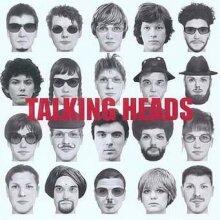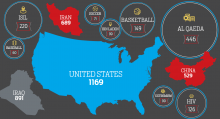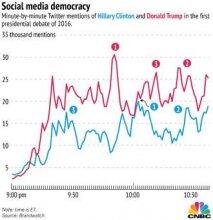We know a lot about fake news. It’s an old problem. Academics have been studying it - and how to combat it - for decades. In 1925, Harper’s Magazine published "Fake News and the Public," calling it’s spread via new communication technoloies "a source of unprecedented dange." That danger has only increased. Some of the most shared "news stories" from the 2016 U.S. election - such as Hillary Clinton selling weapons to Islamic State or the pope endorsing Donald Trump for president - were simply made up.
Publications by Type: Newspaper Article
2017
In politics, it’s become conventional wisdom that talking seriously to regular Americans doesn’t really pay off. Numerous studies have found that citizens appear to dig in their heels, resisting information that contradicts their beliefs - if they’re informed enough to have meaningful beliefs in the first place. When politicians talk to voters, the goal is usually to rev up their base, or shift a tiny wedge of the "undecided," rather to genuinely persuade a broad swath of the public. This might be a discouraging view of how politics works, but it’s also seen as realistic. If Americans aren’t persuadable, there’s little sense in members of Congress wasting their time trying to have meaningful conversations about the future of the country. This view is also mostly wrong.
2016
Barack Obama can spin a good phrase, and while his political opponents like to say his actions don’t always match his soaring rhetoric, there’s no denying the man has said a lot: So far in his presidency, he’s given more than 2,000 official speeches, uttering about 3.5 million different words. So what has he actually been telling us? To answer this question in a whole new way, we analysed all of Obama’s speeches through the end of September and looked at how frequently different terms came up. Surprises abound: Afghanistan was the most-mentioned country after the United States. He talks football more than basketball, Pelosi more than Reid and "change" more than "hope" - except in 2012. Here’s a unique look at what’s really on Obama’s mind.
2015
While numerous political commentators have offered up their opinion about who won or lost last week’s GOP debate, we here at the Lazer Lab at Northeastern University spent the last week looking at the numbers. Actually, we looked at the words: What did candidates actually talk about? How much did they talk, and for how long? The answers gave us three new ways to think about what mattered in the debate, and who won.
Democrats talk about Iraq; Republicans talk about.........Panama? This week is a big one for America’s global relations. While Congress started hashing out whether to hand the president authority to finish the largest trade deal in history, Obama was wrapping up the G-7 economic summit in Germany. Beneath the talking points, what are America’s real priorities when it comes to the rest of the world? We decided to analyze what Congress actually talks about with it discusses foreign affairs - essentially, to draw a map of the world as seen from Capitol Hill. We took all the public statements of members of Congess from 2009 to 2014 (thanks go to VoteSmart for compiling them) and crunched them to see what countries Democrats and Republicans talk about, how their lists differ, and they view those countries as connected.
Every day, millions of people use Google to dig up information that drives their daily lives, from how long their commute will be to how to treat their child’s illness. This search data reveals a kit about the searchers: their wants, their needs, their concerns - extraordinarily valuable information. If these searches accurately reflect what is happening in people’s lives, analysts could use this information to track diseases, predict sales of new products, or even anticipate the results of elections.
Crunching the words, experts find Trump got the attention, Rubio made the most of his chances and Jeb squandered them. A lot of ink has been spilled over last Wednesday’s debate, but here’s another way to talk about it. Judging purely by the data, Trump still dominated - but Fiorina and Christie really stepped forward, and Rubio made the most of the openings he had. Jeb Bush, meanwhile, had plenty of chances but largely let them slip by.
2014
It’s too easy to be led astray by the lure of big data. Google Flu Trends has long been the go-to example for anyone asserting the revolutionary potential of big data. Since 2008 the company has claimed it could use counts of flu-related Web searches to forecast flu outbreaks weeks ahead of data from the Centers for Disease Control and Prevention. Unfortunately, this turned out to be what i call big-data hubris. Colleagues and I recently showed that Google’s tool had drifted further and further from accurately predicting CDC data over time. Among the underlying problems was that Google assumed a constant relationship between flu-related searches and flu prevalence, even as the search technology changed and people began usingit in different ways.







